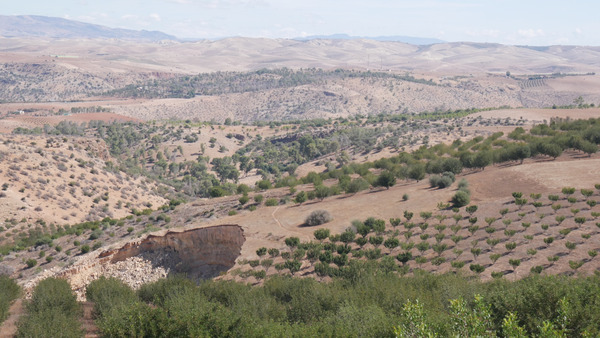Facing the constraints related to climate change and centuries of intensive farming practices affecting soil quality and fertility, an innovation project joining forces of 15 organizations in the Mediterranean region aims to reverse the trend. The objective is to regenerate soils and diversify the agricultural economy through a large-scale adoption of agroforestry systems.
Due to years of successive droughts, heat waves, and poorly regulated intensive agricultural practices, many regions in the Mediterranean basin are experiencing deterioration of soil, resulting in a loss of agricultural production potential. Consequently, the economies of rural populations are weakening, and farmland is gradually being abandoned.
Agroforestry Systems (AFS) offer an excellent multidimensional restoration strategy to tackle these challenges and facilitate farm recovery. AFS improve soil quality and enhance the biodiversity and productivity of agroecosystems. Additionally, beyond the biophysical benefits, AFS can improve the livelihoods of smallholders and contribute to job creation by developing value chains for AFS products.
Based on the experiences of several agroforestry lighthouses in Morocco, Tunisia, and Turkey, TransforMed aims at supporting the large-scale adoption of agroforestry systems in saline, wind eroded and infertile areas.
The project will be focusing on:
- Scaling up successful practices that are ongoing in four lighthouses in Southern Mediterranean regions,
- Using local stress-tolerant and diverse crops (e.g. argan, carobs, and up to 15 other species), whose increased productivity can be essential to promoting socio-economic development in depressed regions,
- Increasing awareness and training local stakeholders to implement AFS,
- Identifying and overcoming the socio-economic and socio-cultural obstacles to the adoption of these systems, and
- Strengthening community self-governance to secure the establishment of the practices beyond the life of the project.
Particular attention will be given to understanding the needs of the Mediterranean contexts studied by the project, identifying the requirements in terms of theoretical knowledge and technical application of agroforestry systems. Finally, efforts will also be devoted to finding relevant and targeted ways to transmit knowledge, through outreach materials (technical sheets, learning documents) or through events aimed at tutoring and exchanging information with farmers, agricultural institutions, universities, and policymakers.
The project officially kicked off on the 26th of September with a meeting in Meknes, Morocco. Representatives from the seven international partner institutions gathered to outline the project's roadmap and collaborative efforts. The project is managed and coordinated by the Beta Technological Center, a research institute attached to the University of Vic-Central University of Catalonia, Spain.

 tap and then scroll down to the Add to Home Screen command.
tap and then scroll down to the Add to Home Screen command.